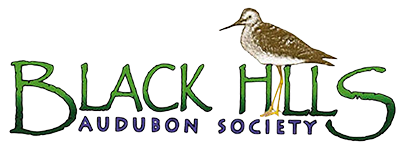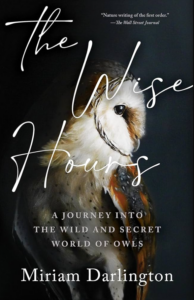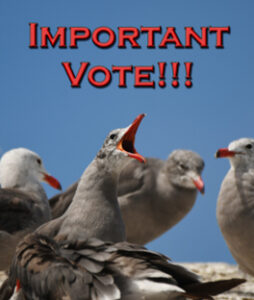 As birders and others interested in wildlife go about their activities, they’re likely to find injured animals that could be saved by people with the necessary expertise. Here’s a brief introduction to wildlife rehabilitation, a profession licensed by the State of Washington.
As birders and others interested in wildlife go about their activities, they’re likely to find injured animals that could be saved by people with the necessary expertise. Here’s a brief introduction to wildlife rehabilitation, a profession licensed by the State of Washington.
While the Washington Department of Fish and Wildlife (WDFW) manages wildlife on a population level, it values the role of wildlife rehabilitators who care for sick, injured, and orphaned wildlife. All native wild birds, mammals, reptiles and amphibians are protected by State laws and regulations, and it is unlawful to attempt rehabilitation
without the proper permit. Anyone wishing to practice wildlife rehabilitation must get a Wildlife Rehabilitation Permit (WAC 232-12-064) from the WDFW, which authorizes a person to temporarily possess and treat injured, diseased, oiled, or abandoned wildlife for the purpose of wild release. Rehabilitators must meet several requirements to earn this permit, and those who work with native migratory birds must also have a US Fish and Wildlife Service Migratory Bird Permit. Licensing ensures high standards of practice and that all wildlife rehabilitators are trained, qualified, and provide humane care and housing for wildlife in their custody.
Animals in rehabilitation face one of four fates: successful rehabilitation and release, non-releasable permanent educational placement, natural death as a result of its condition, or euthanasia. On average, half or more of the wildlife brought to wildlife rehabilitation facilities die or must be euthanized. So rehabilitators must make difficult decisions daily and take their responsibilities seriously. Every animal is carefully evaluated, diagnosed, and treated through a program of veterinary care, proper diet, medication, physical therapy, exercise, and prerelease conditioning. Successful rehabilitation means that released animals are physically and psychologically fit and can truly function as wild animals. State law states that they must be able to recognize and obtain the proper foods, select appropriate mates and reproduce, show fear of potential dangers, and know how to avoid predation. Successful releases are planned according to weather, season, habitat, safety, and location.
Most rehabilitators rely on you to get the animals to them. Since they are volunteers, by law they may not be paid for their work except by donation. WDFW asks that we respect the time, compassion, and personal expense they put into every animal they care for, and consider donating to these caregivers.
In Thurston County, Yelm Veterinary Hospital (360-458-7707) treats injured small mammals and birds, but no orphans or babies. Raindancer Wild Bird Rescue (360-970-5402) in Olympia treats birds of prey, corvids (crows, ravens, jays), and bats. In Pierce County, Jasmine Fletcher’s “A Soft Place to Land” ( 360-761-2915) in Graham treats small mammals, deer and elk. Kelley Ward’s-Featherhaven (253-350-5792) in Enumclaw treats songbirds only.







